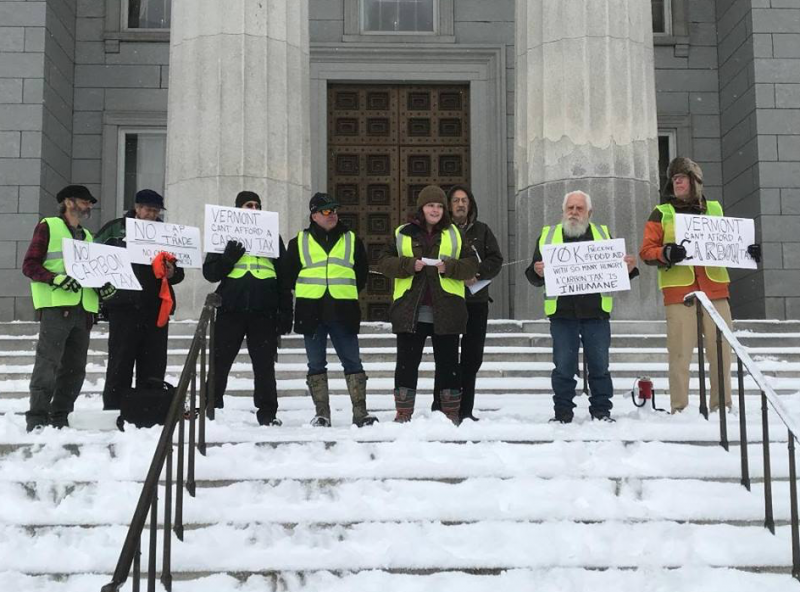
Vermont lawmakers considering a carbon tax were confronted by protests on their first day in session. Dozens of anti-carbon tax protesters, wearing yellow vests, showed up at the statehouse to voice their opposition to the policy.
The protesters, dressed to mimic the Yellow Vest movement in France, explained that they opposed the carbon tax measure because Vermonters can’t afford any new taxes on gasoline, diesel, and home heating fuels.
Dwight Day, a Vermont resident, attended the rally to oppose the tax. He told Americans for Tax Reform he was passionate about stopping the tax because “the carbon tax is just another excuse by the socialist liberals to get more money from VT citizens and make VT even more business unfriendly.”
About 75 people attended the rally, according to attendees.
Skyler Bailey, a self-proclaimed political independent, attended and spoke at the rally. In his speech he said he believed the global climate has been warming but that a carbon tax won’t do anything to help.
“When the Essex plan was first made public, I was determined to have an honest look at it and to judge it by its merits,” he said, referring to Vermont’s proposed carbon tax. “My suspicions were raised when its authors claimed the plan would be both revenue neutral and a good source of revenue for funding the development of new technologies.”
Bailey told Americans for Tax Reform that when he went to look into the claims of proponents of the Vermont carbon tax, he could “find no evidence at all that they had not quite literally made their numbers up.”
“When I started doing my own research, I could find no evidence that carbon taxes had ever decreased emissions in the countries where they have been tried, and even correlate with increased emissions,” he continued.
Bailey thinks the tax would be particularly problematic for Vermont residents. “Vermont is a state with a large proportion of our population who are very barely keeping their heads above water financially. We have high taxes, a high cost of living, and we are a rural state where most people spend large portions of their income on gasoline and heating fuel. A carbon tax in Vermont would hurt a lot of people who absolutely cannot afford it, and there is no evidence that emissions would be decreased at all.”
“Carbon taxes are regressive taxes that disproportionately hurt the poor, and do not decrease emissions,” concluded Bailey.

